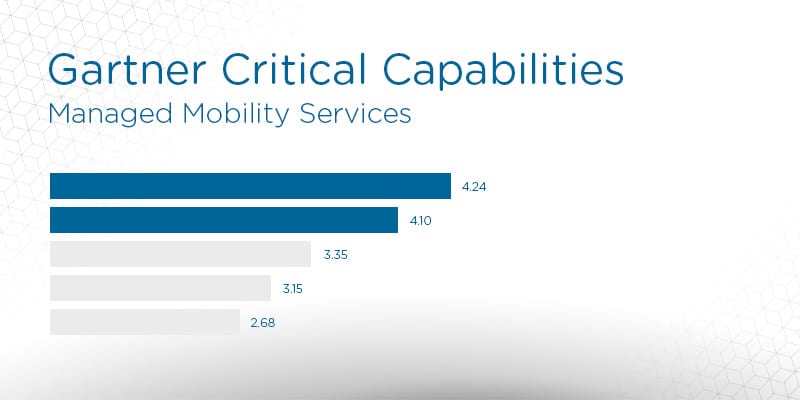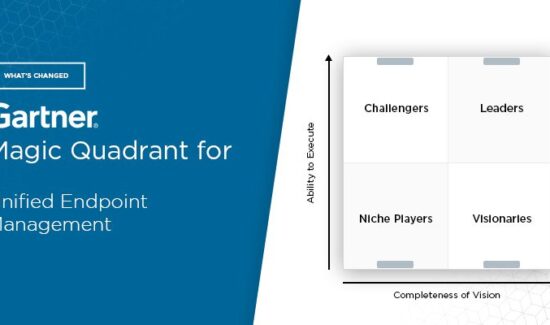2020 Gartner Critical Capabilities for Managed Mobility Services: Key Takeaways

Analyst house Gartner, Inc. has released its 2020 Critical Capabilities for Managed Mobility Services, a companion research to the popular Magic Quadrant report. Used in conjunction with the Magic Quadrant, Critical Capabilities is an additional resource which can assist buyers of data and analytics solutions in finding the products that best fit their organizations.
Gartner defines Critical Capabilities as “attributes that differentiate products/services in a class in terms of their quality and performance.” Gartner rates each vendor’s product or service on a five-point (five points being best) scale in terms of how well it delivers each capability. Critical Capabilities shows you which products are best for each use case and includes a comparison graph for each, along with in-depth descriptions on the various points of comparison.
The study highlights 14 vendors Gartner considers most significant in this software sector and evaluates them against five critical capabilities and four use cases prevalent in the space, including:
- Secure access to information
- Resource and cost visibility and control
- Mobility outsourcing
- Business extension and transformation
The editors at Solutions Review have read the report, available here, and pulled out three key takeaways.
DMI, Telefonica, and IBM lead the way
Of the 14 vendors Gartner evaluated for this report, three vendors consistently rank across all four MMS use cases: DMI, Telefonica, and IBM. In all four of the use cases, these providers are always placed in the top three slots; DMI is ranked the highest across all use cases, while Telefonica and IBM trade off the second and third place slots. Gartner’s evaluation of DMI revealed how well the vendor is prepared to deal with general MMS use cases in each of the three regions analyze by Gartner (the U.S., Europe, and Asia/Pacific). IBM is also equipped to handle all three regions, while Telefonica is almost exclusively focused on European countries.
Most enterprises are using MMS to reduce costs
When considering the MMS market at large, Gartner noted that vendors are primarily focused on effectively minimizing and tracking mobility costs rather than aligning with digital workplace services. This seems logical, given that enterprise mobile spending is growing across the globe. Gartner predicts that in 2020, global enterprise mobile spending will total $237.5 globally, which is driving companies to rapidly increase spending on outsourced mobility management services.
MMS capabilities are growing incrementally
Although the major MMS features are focused on reducing mobile operating costs, Gartner noted that other MMS offerings are growing — though only incrementally. In particular, the analysts noted that providers are adding partners for telecom expense management, device security, or unified endpoint management. Vendors are also expanding robotic process automation capabilities to improve service delivery and reduce time-to-resolution of client issues.
Read the Gartner Critical Capabilities for Managed Mobility Services here.
Looking for more info on the benefits of mobility management for your company’s mobile devices? You should check out our free 2020 Mobility Management Buyer’s Guide. We profile the top vendors in the mobility management field, their key capabilities, and our Bottom Line for each.
Check us out on Twitter for the latest in Enterprise Mobility news and developments!




















